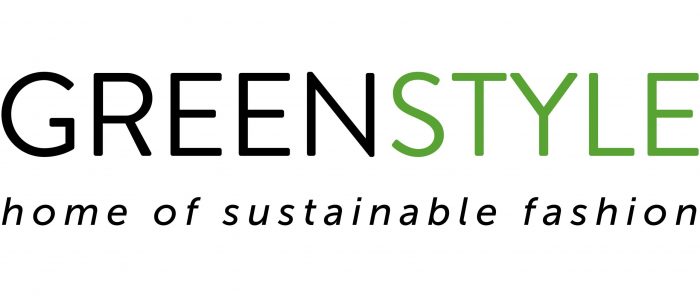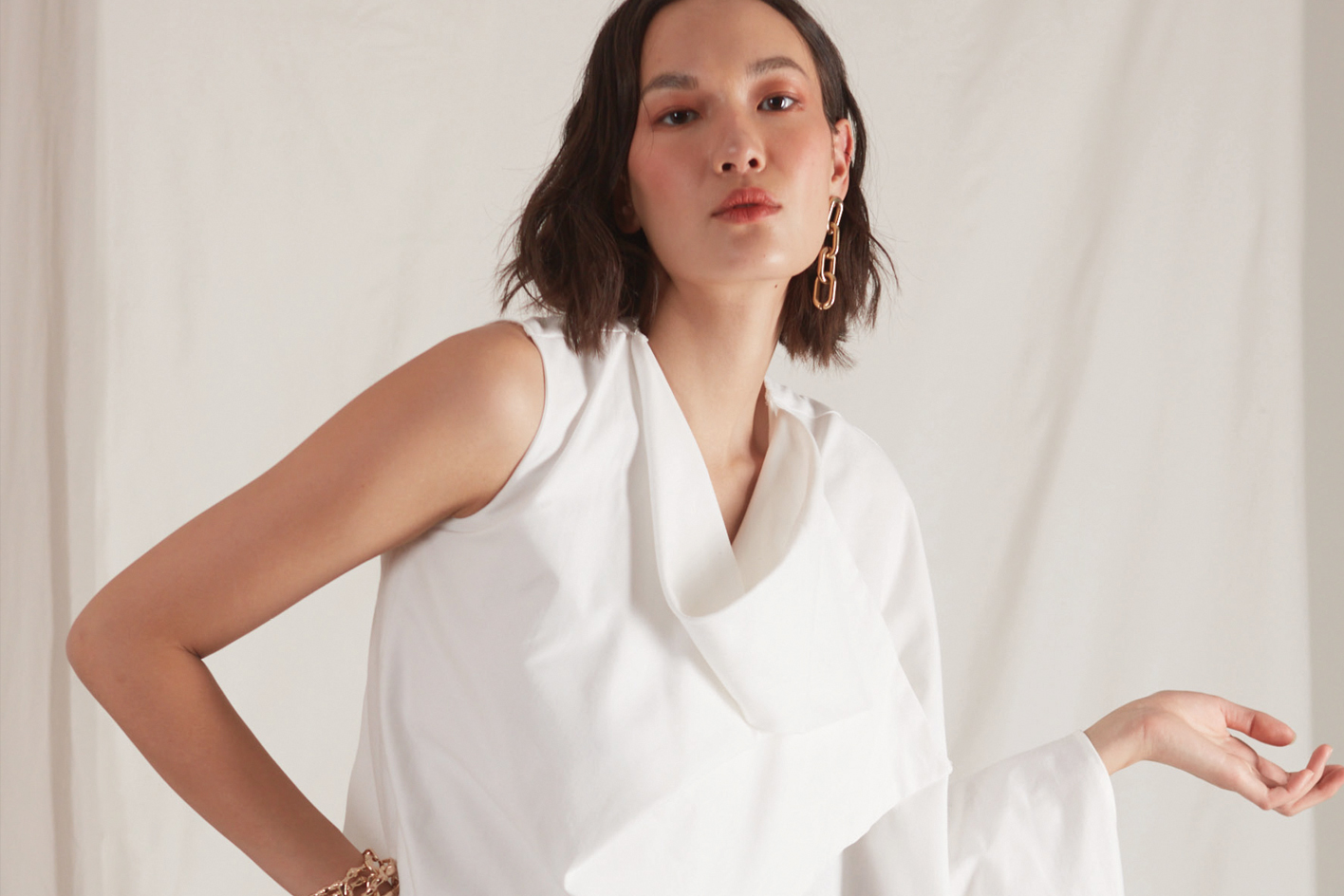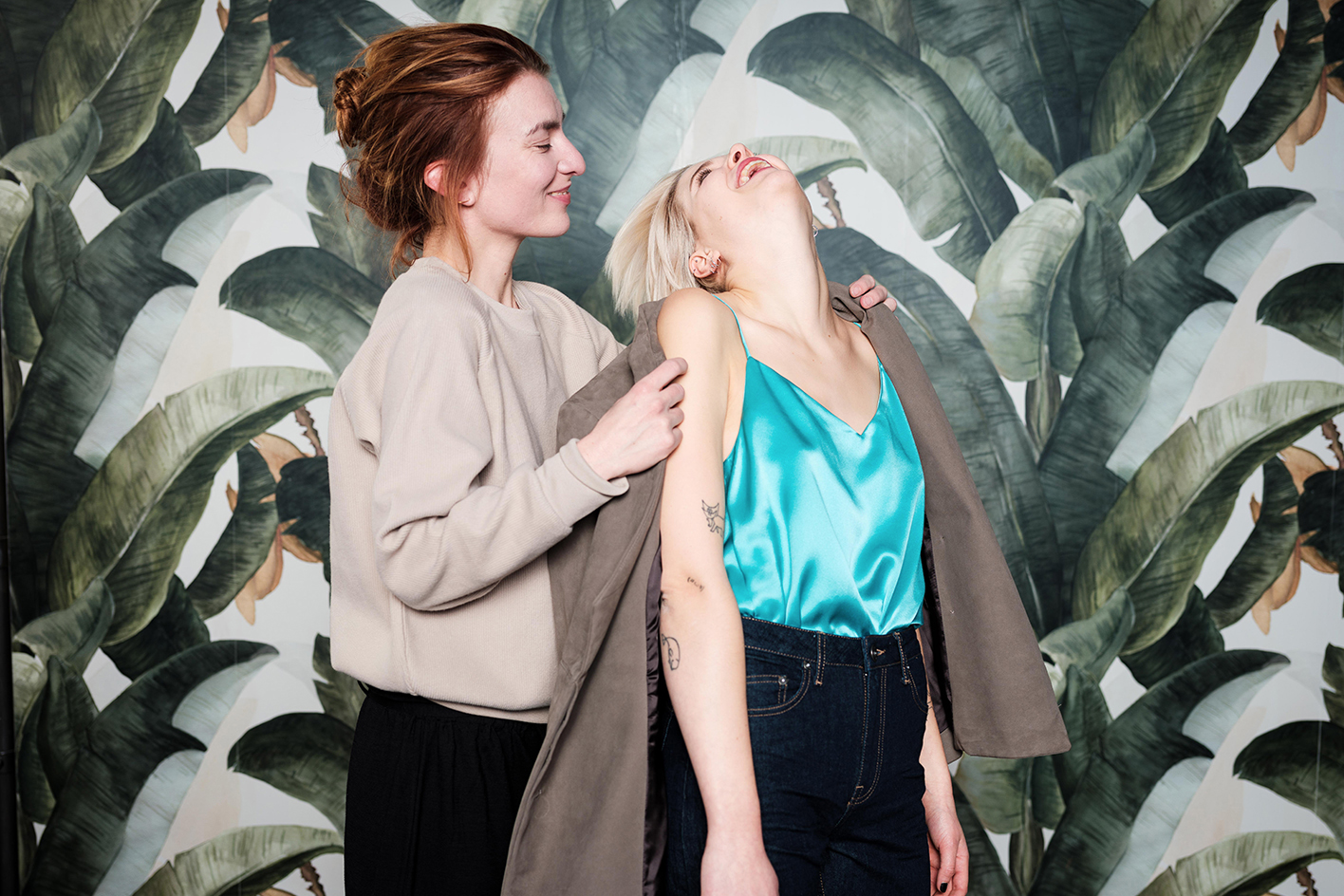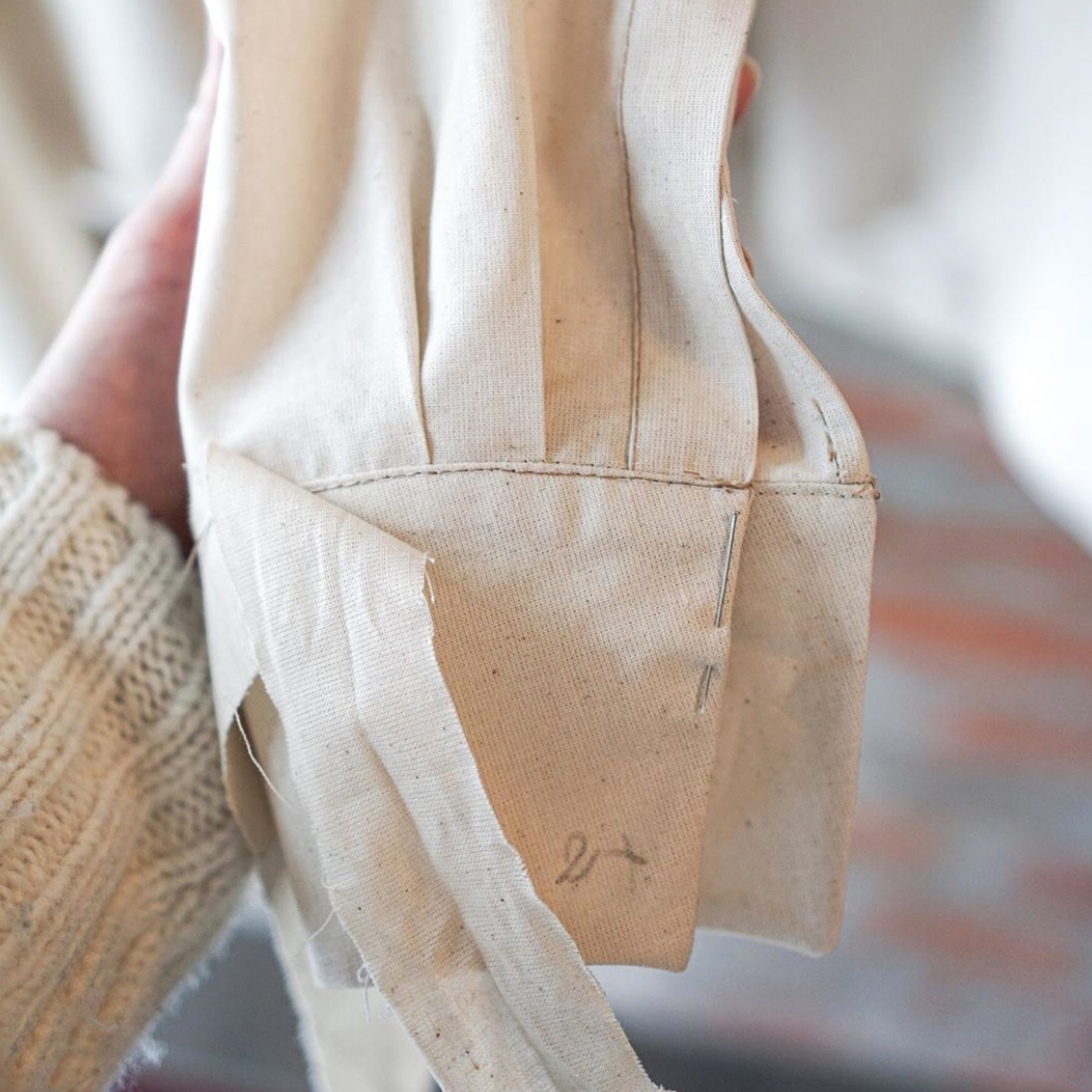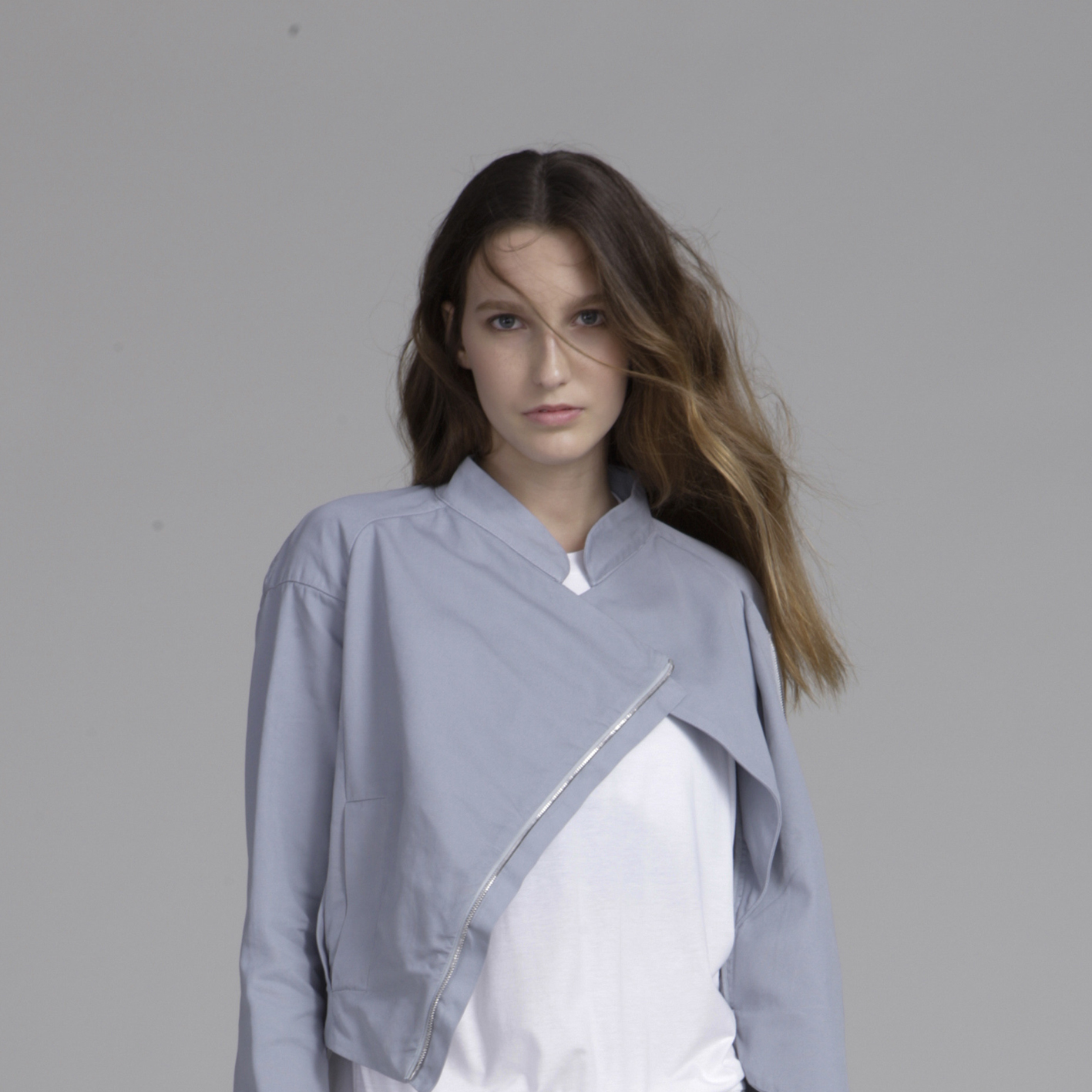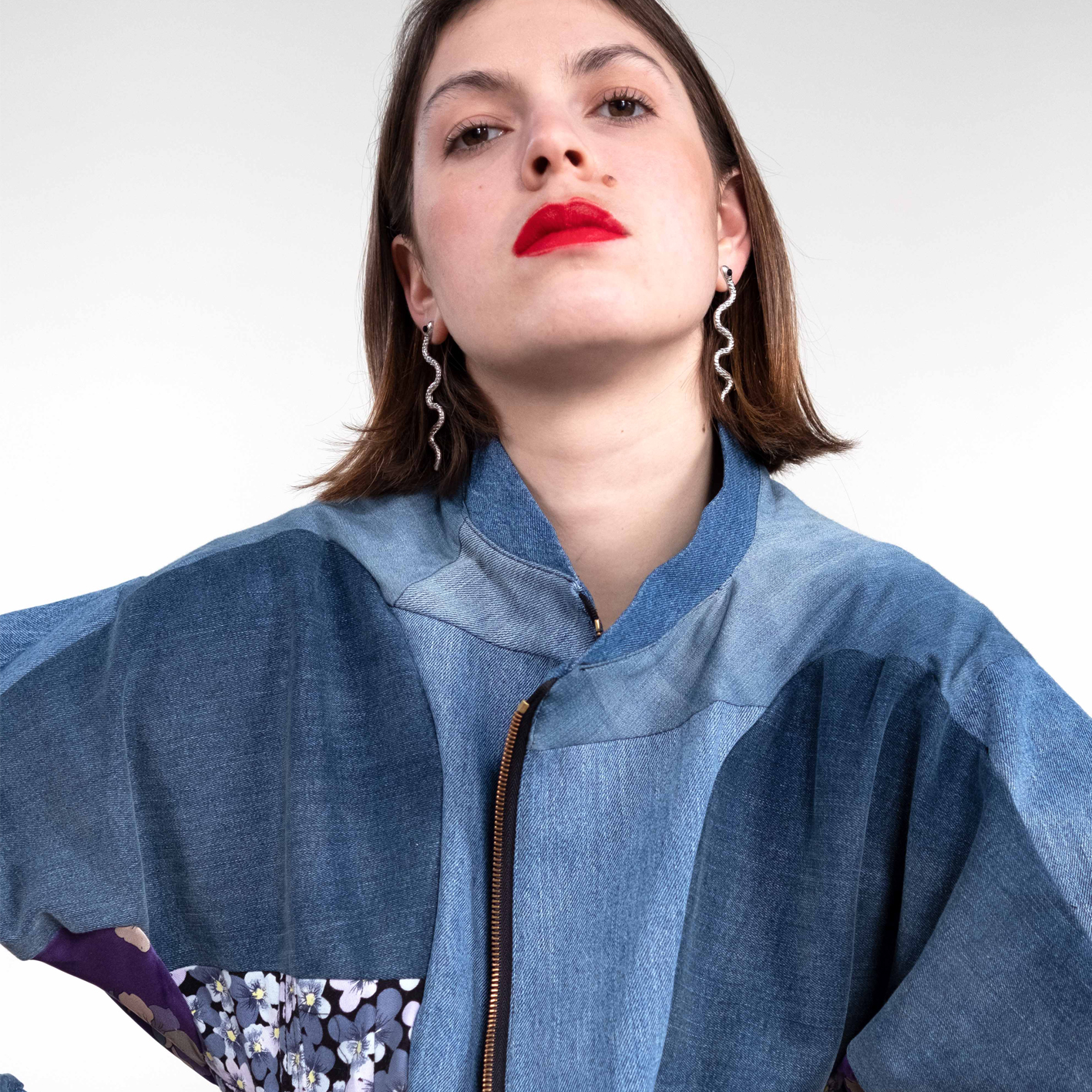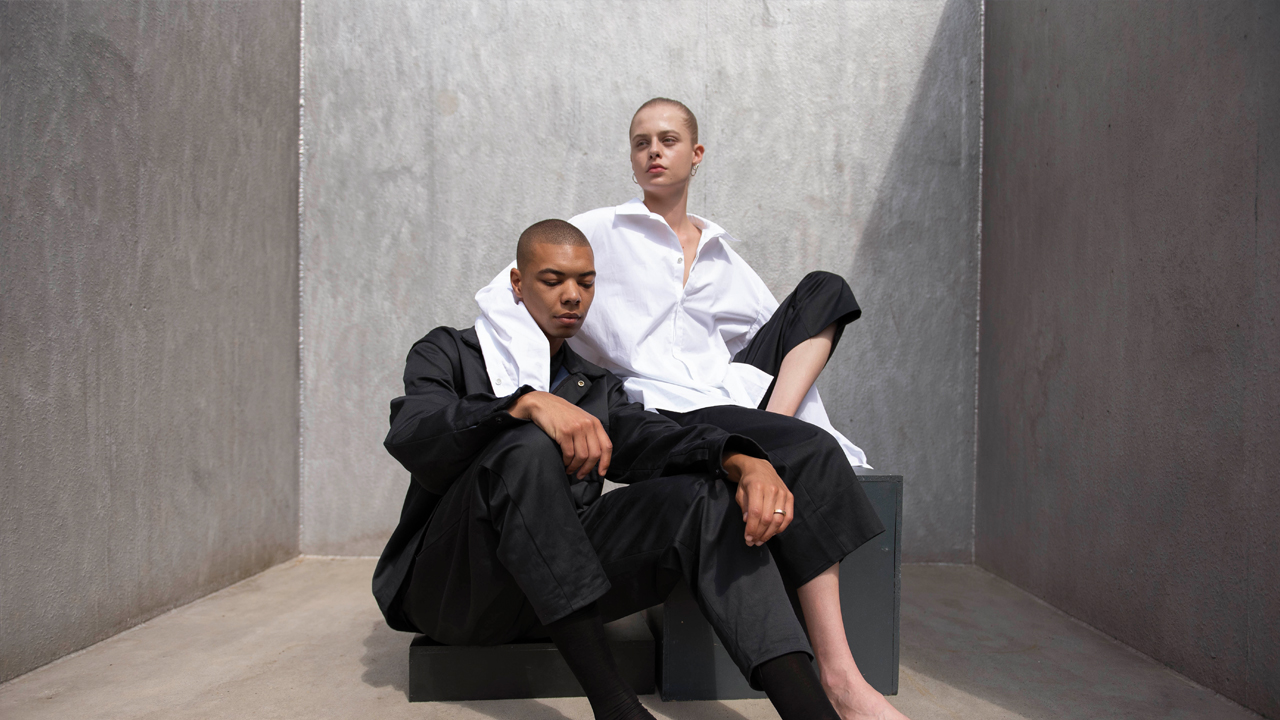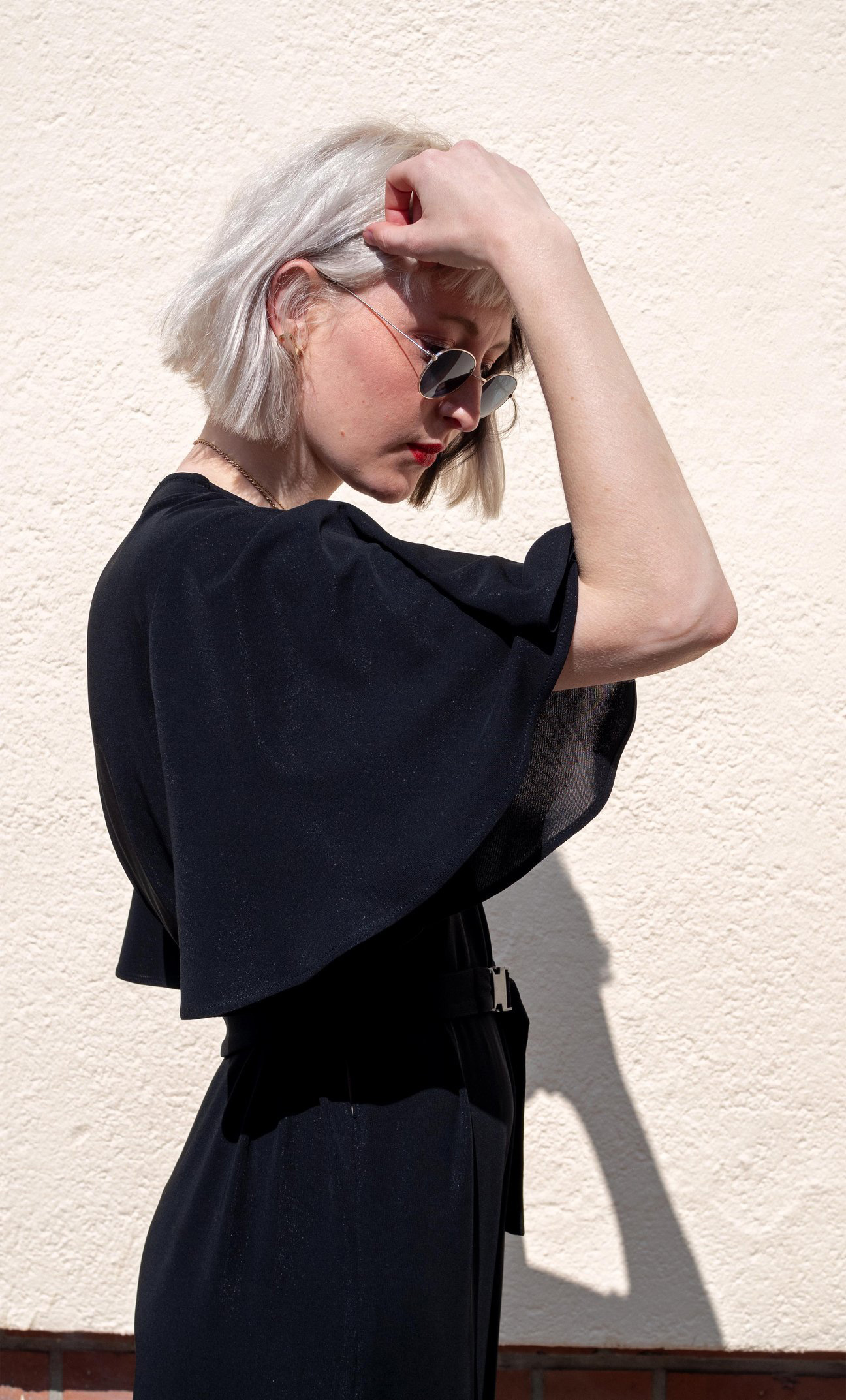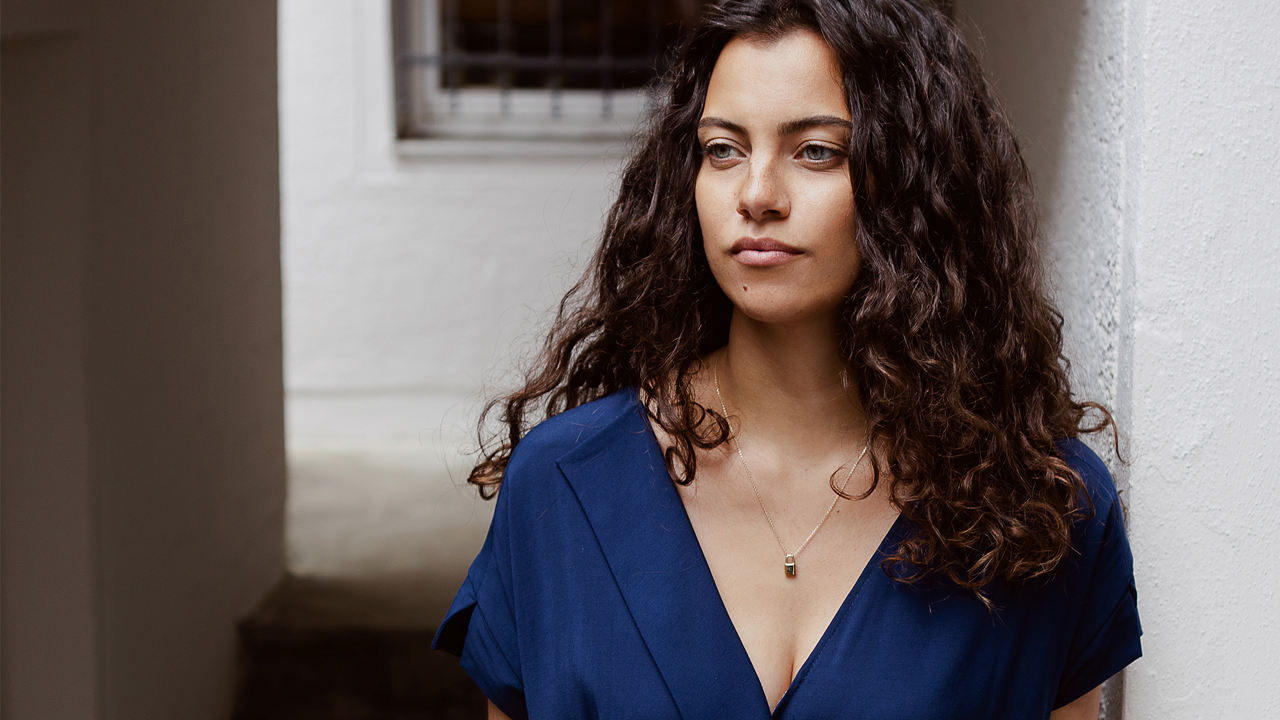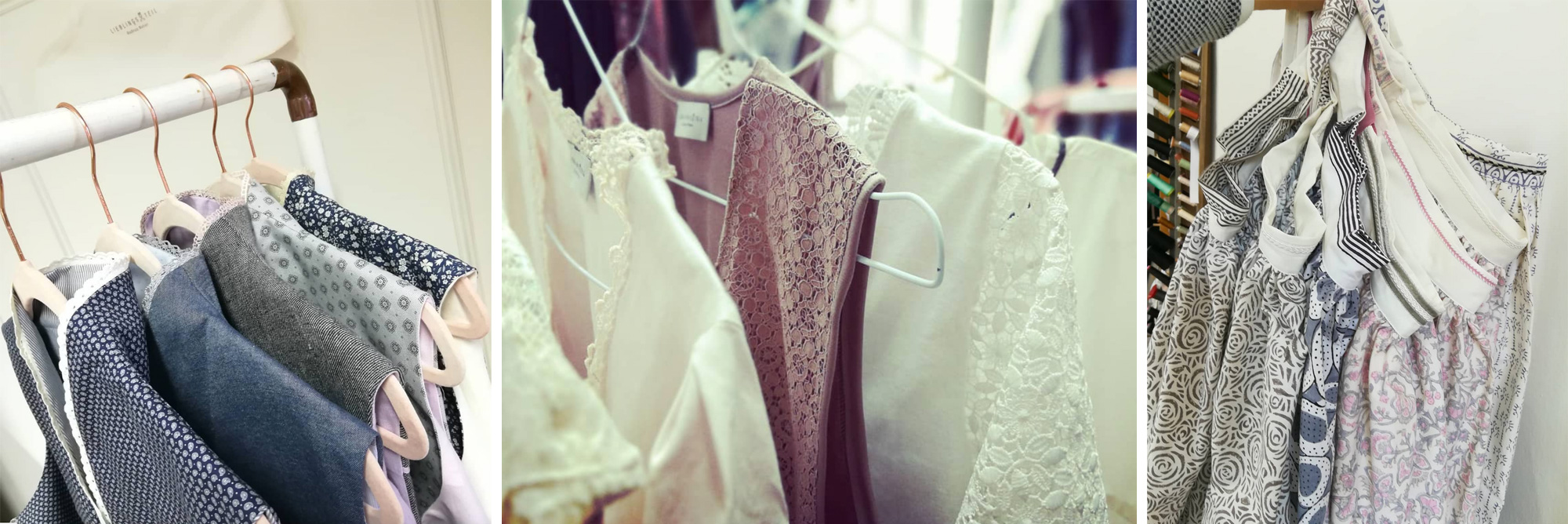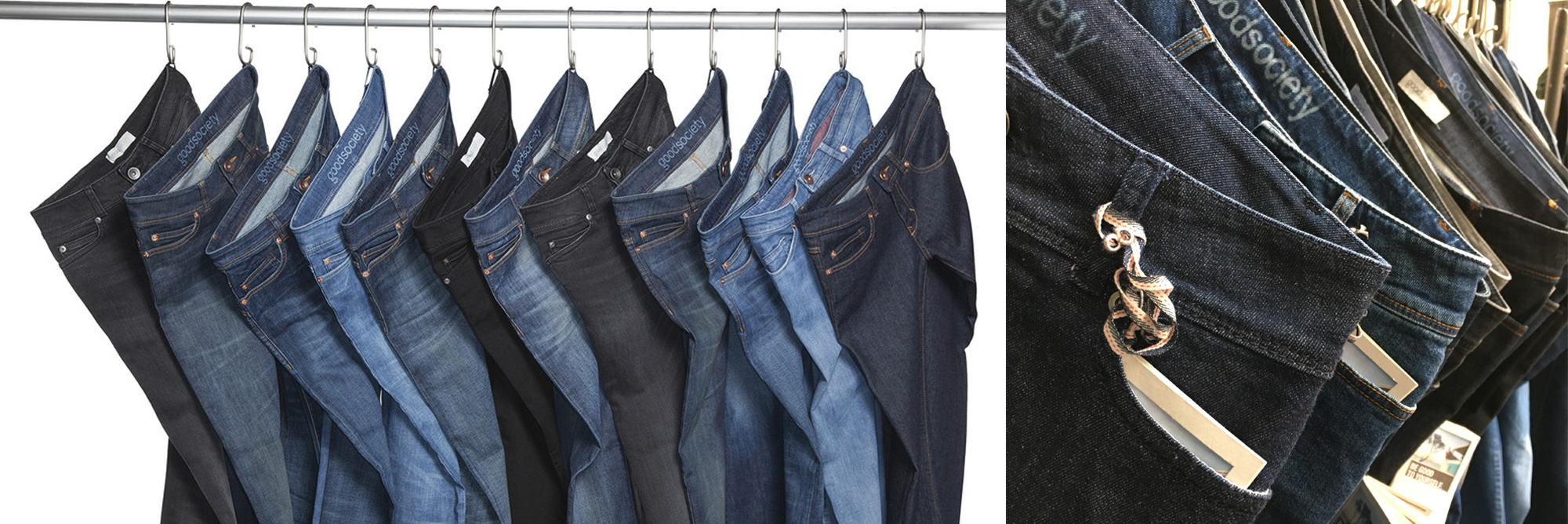Layered coats, pants that transform into jumpsuits, asymmetrical cuts for blouses, dresses and skirts – the designer from Berlin, Sepideh Ahadi, with her Iranian roots is the symbol of a true melting pot of cultures. With her minimalist, innovative ready-to-wear designs, she picks up on social issues to encourage her clients to see fashion in a different context.
Continue readingStay Awhile
Rent what you like; buy what you really love. Thekla Wilkening has long been aware that renting is the new way to buy. Since 2019, the co-founder of the clothing store, Germany’s first fashion rental concept, has been bringing her expertise in borrowed clothing to her project, Stay Awhile.
Continue readingSETERY clothing
Hanna Greis takes a contemporary approach with her brand, SETERY. Instead of launching an XL collection, she focuses on a smaller version: the capsule wardrobe. With only ten pieces, she wants to make mornings easier for business women. The Kickstarter campaign will start in spring 2020.
Continue readingRE-BELLO
RE-BELLO was the first fashion label “Made in Italy” to address concepts such as responsibility and innovation by combining style, high quality design and fashion with respect for environmental issues. Even years after its foundation, the brand continues to show that sustainable + minimalist can be a successful concept.
Continue readingJOA
The London-based zero-waste fashion brand, JOA, works with materials that no one else wants. Trousers, blouses, dresses that they get from charity stores – even if they were slow sellers – are transformed into bombers and parkas that are as individual as the people who wear them.
Continue readingAA Gold
During the production of garments, up to 20% of resources are lost and are considered fabric waste. With AA Gold Arnold Gevers proves that textiles can also be produced without waste. He starts at the beginning of the value chain and thus designs patterns without waste.
“Today’s fashion system does not reflect the needs of today’s world,” says Arnold Gevers, fashion designer and professor at the AMD Academy of Fashion & Design in Munich. Because he does not want to submit to this system, he has given his visions a framework and founded AA Gold in 2019. His goal: change.
The Change is GOLD
The use of sustainable materials and a contemporary adaptation of the design process are an integral part of his concept. His enthusiasm for the zero waste theme, which he developed during his collaboration on the Kopa Kona collection with the artist Michael Hofstetter, has been further developed with AA Gold. The result? Contemporary styles for contemporary people.
100 percent style – 0 percent waste.
The design method behind zero waste fashion requires the transformation of certain details and shapes of the garments. Our aim is to develop designs that are both contemporary and fashionable despite their limitations. The styles are fresh and with flair and at home in fashionable wardrobes.
Start of the crowdfunding campaign: October 2019
The implementation of the AA Gold collection Maxi Over can be supported from October 2019 within the framework of a crowdfunding campaign.
More information about AA Gold
Corvera Vargas
Fairness, transparency and zero waste are the principles of Maria Vargas’ label located in Berlin, producing contemporary fashion from leftovers since 2013. This not only reduces the waste within the textile industry, but also leads to highly limited, great individual pieces at an affordable price.
Continue readingNina Rein
After jobs at i.a. Comma, s.Oliver and Daniel Hechter, it was clear to Julia Ickert that with her knowledge and competence she could also found a label according to her taste. Wonderfully feminine and wonderfully lots of color, maximum quality, with sophisticated cuts, timelessly elegant, always something special and above all sustainable. Because Julia Ickert cannot and does not want to support conventional production. The German from Kazakhstan has been on the market with her ultra-feminine Nina Rein collection since the beginning of 2018.
Julia Ickert cannot and does not want to support conventional fashion anymore
Clean, minimalist favorite pieces such as the classic white, perfectly fitting (ladies!) Suit (speaking of color: it’s also available in signal red, of course), sheath dresses with artistic box pleats, narrow cigarette pants with refined, graphic patterns, uniform-inspired maxi dresses in gently flowing sky blue. This is Nina Rein and here the love is in the details.
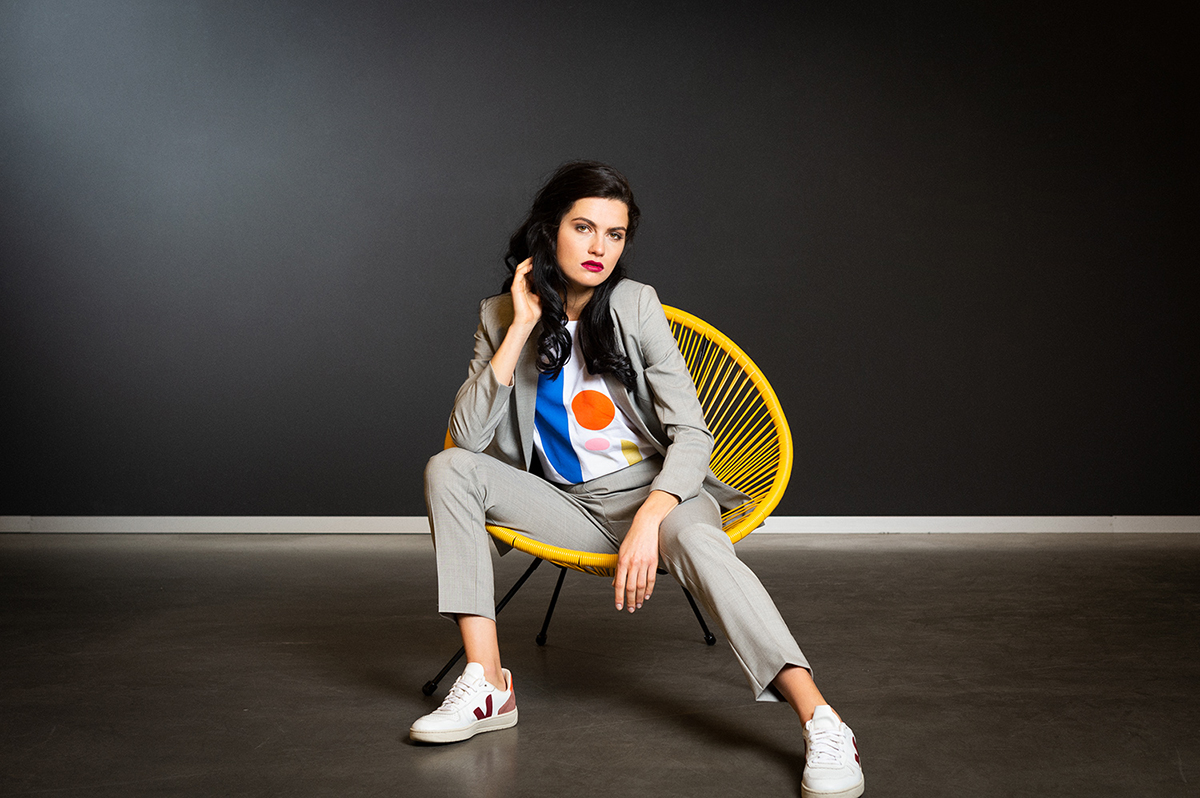
What would Julia Ickert do differently with her own label?
The principles of her own label are therefore the exclusive use of natural materials, resource-saving production and fair working conditions.
Production by Nina Rein
The manufacturing of Julia Ickert is at a Lithuanian company that meets the GOTS requirements but does not have the certificate from an economic point of view. Her knitwear is produced by a German GOTS-certified company. The denim pieces are made in Tunisia by a sustainable company. Nina Rein works exclusively with suppliers who respect the environment and protect it with regard to water, energy consumption and use of chemicals.
#byebyeplastic
Only natural materials are used for the collections. She uses certified materials, some of them GOTS and from controlled organic cultivation or controlled animal husbandry. The viscose comes from the Austrian manufacturer Lenzing. Julia Ickert also avoids 100 percent plastic when it comes to ingredients such as the buttons. She is looking for good solutions for many other ingredients, because sustainability is not a status. Sustainability is one way and Julia Ickert follows it consistently, if possible …
More about Nina Rein. Click here
LIEBLINGSTEIL
Gudrun Weber is from the northern part of the Black Forest. With her studio, she landed at Simssee in Bavaria.
Continue readingakjumii – sustainable high fashion
Since 2012, the two akjumii designers Anna Karsch and Michaela Wunderl-Strojny have been focusing on sustainable high fashion with an avant-garde touch. What else could be optimized about it? With the 3IN1COAT, the visionaries have developed the ultimate sustainable garment.
Continue readingLANA
“We are in an exciting time of upheaval. Both in the fashion industry in general and with the realignment of the Lana line in particular.
Continue readingGoodsociety
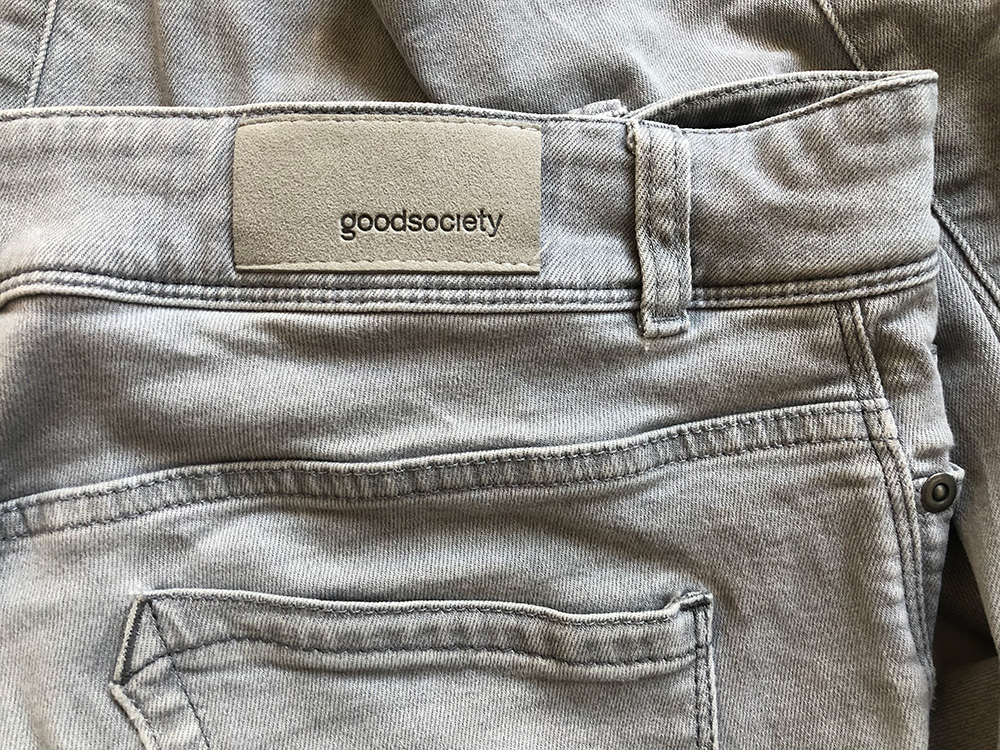
Fashion has somehow always interested Dietrich Weigel. That’s why he did an apprenticeship as a tailor in haute couture and has worked his way through various stations in the fashion business. Today, he produces eco-fair denim styles from slim to flared and cropped to high waist for his label Goodsociety. Originally founded in the USA in 2007, Dietrich Weigel took over the label five years later and expanded it according to his own ideas. For Dietrich Weigl, sustainability does not stop at organic; it only begins there. Fair working conditions, no use of harmful chemicals and CO2-neutral work are self-evident with his eco-brand.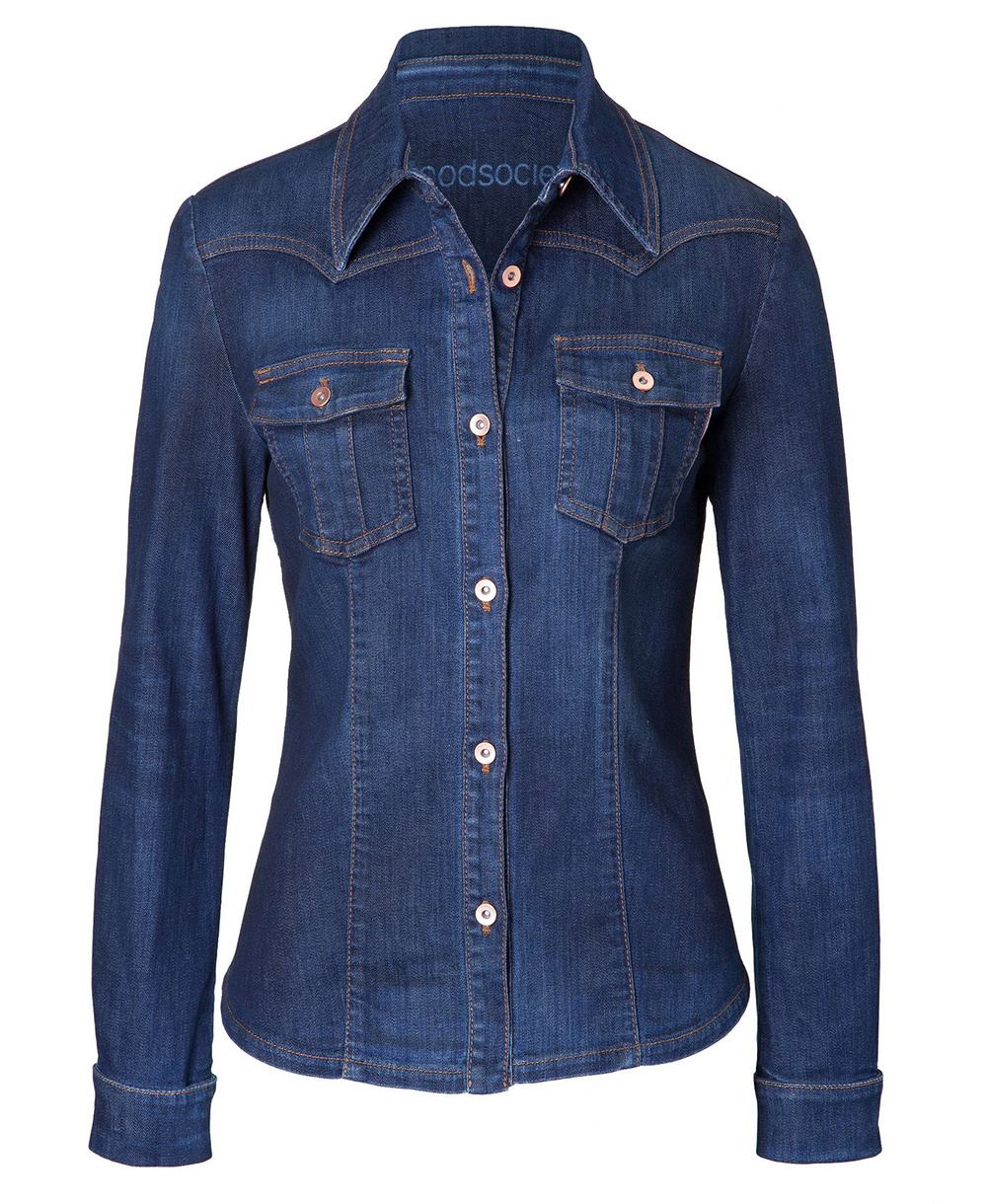
Spinning, weaving, dyeing and finishing yarns – Goodsociety has its production in Italy. Of course Dietrich Weigel knows all his suppliers personally. After all, this is all about transparency. This is why his cotton-growing partner farms in India, Pakistan and Turkey are inspected by the Global Organic Textile Standard (GOTS). His trousers are Peta Approved Vegan, the typical trouser back patch is not made of leather but of Alcantara. Buttons and rivets are 100 percent, the copper parts are 85 percent recycled metal.
Good news: Our favorite piece of clothing is also available in good!
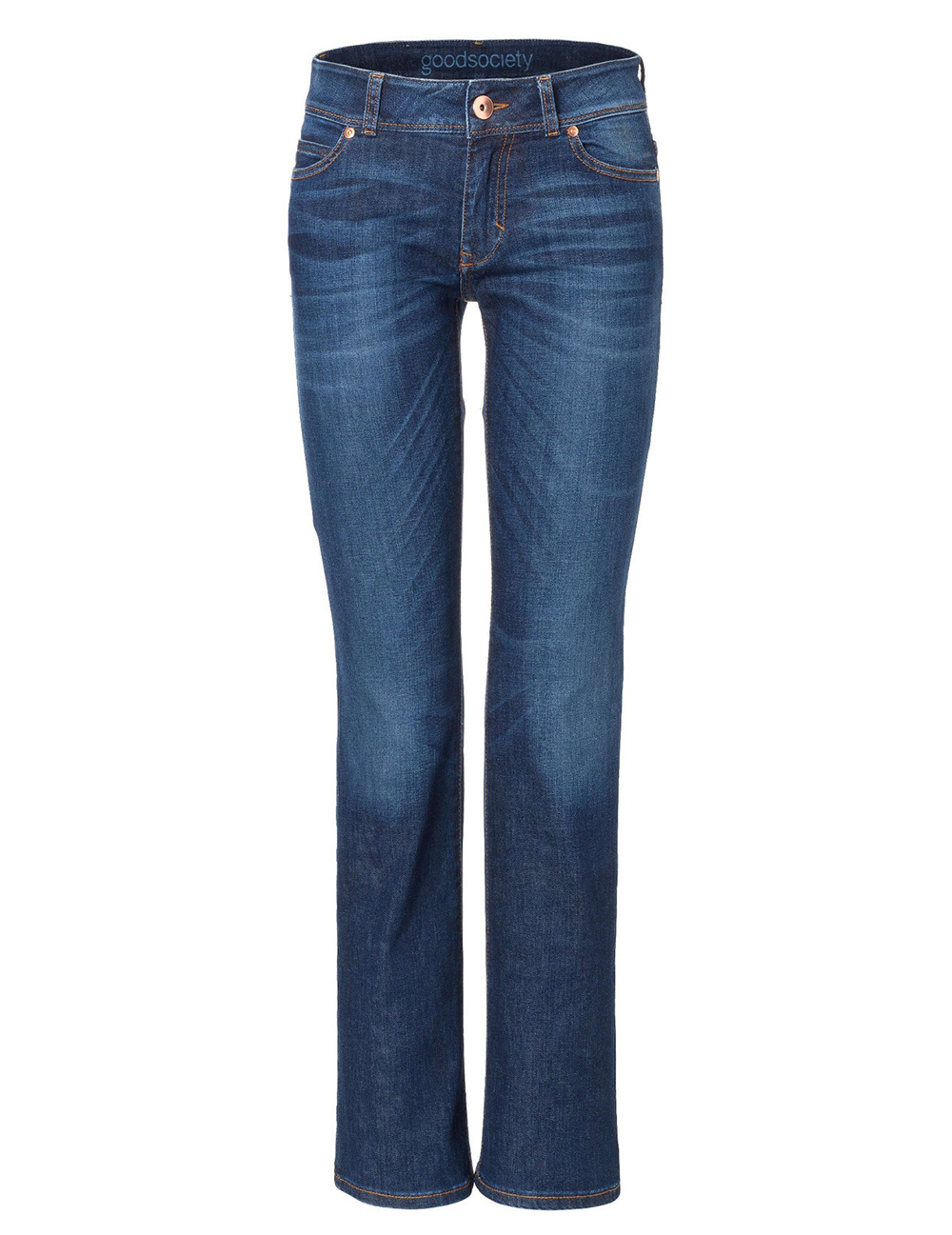
That sustainable lifestyle and social responsibility in connection with fashion work well was recognized early on at Goodsociety. This is why the eco-denim label donates around 25 percent of its profits to selected projects worldwide that protect nature and promote social development and individual freedom.
Goodsociety
Nymphenburger Strasse 86
80636 Munich
Learn more about Goodsociety.
© Goodsociety
